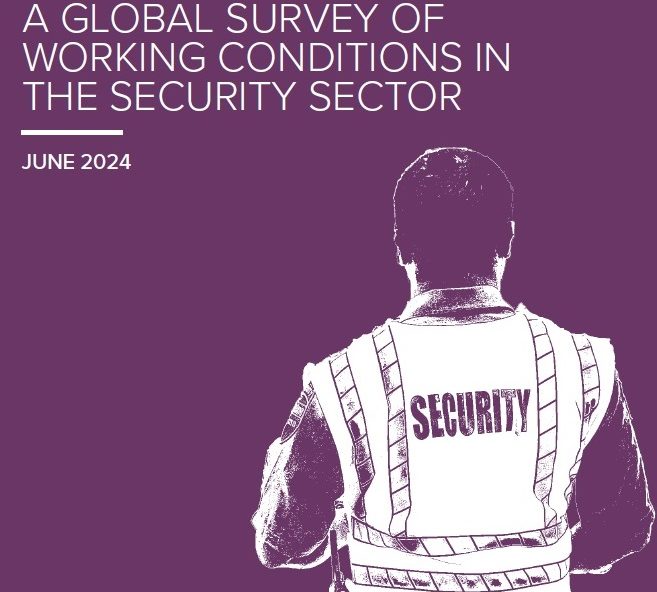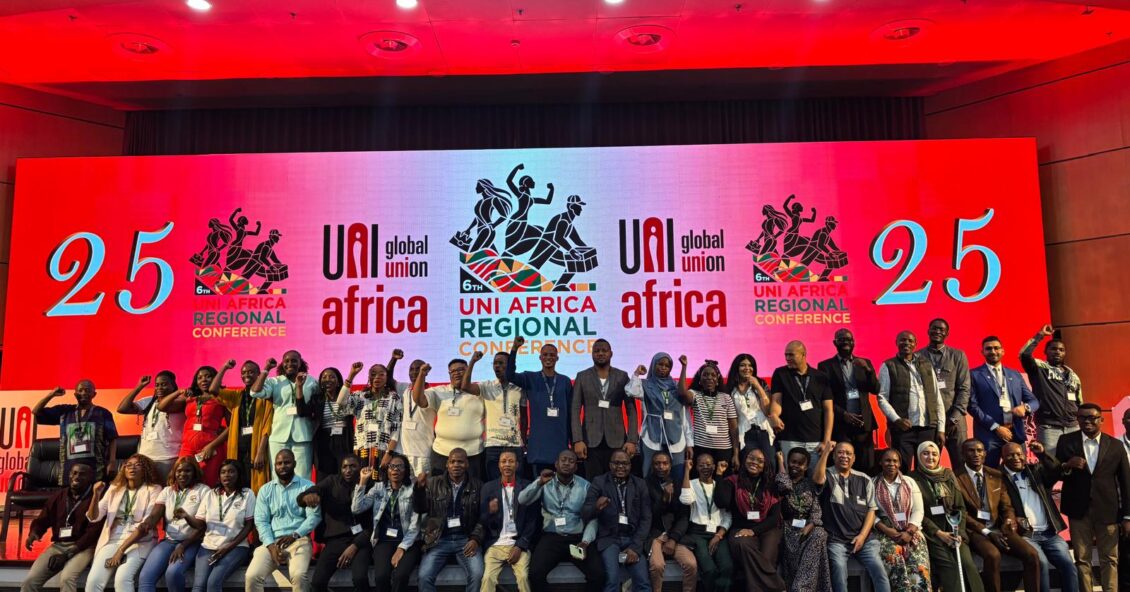Global survey reveals urgent need for unionization in private security
12.06.24
In observance of International Justice Day, UNI Global Union released today an extensive global survey highlighting the working conditions of security workers. The survey called Insecurity in Security Work: A Global Survey of Working Conditions in the Security Sector, reveals that an overwhelming majority of security officers feel underpaid, unsafe, and in urgent need of union representation to improve their working conditions. The findings call for immediate industry-wide reforms to ensure safe and fair working environments, with strong backing from unions to advocate for and protect the rights of security workers worldwide.
“These findings are a cry for immediate action. Security workers keep us safe, yet they face daily dangers, discrimination, and inadequate pay. Employer action is long overdue. It´s time they step up, raise standards and ensure decent pay and safety, respect at work.” said Michala Lafferty Head of Property Services for UNI Global Union. “Unions play a crucial role in advocating for these workers, and it’s clear that collective action is essential to drive the progress we need.”
This study, conducted by Jarrow Insights, gathered responses from over 11,000 security workers across 35 countries, shedding light on the pressing issues faced by these essential yet often overlooked workers.
Key Findings:
Underpaid and Overworked: Pay Dissatisfaction in the Security Sector
– Amidst a global cost of living crisis, 57% of security workers expressed dissatisfaction with their pay.
– Reports of forced overtime, underpayment, and irregular pay are rampant, exacerbating the financial strain on workers.
Unsafe and Under Attack: Endemic Discrimination, Harassment, and Violence
– One in five security workers feel “very unsafe” in their jobs.
– Approximately 50% have experienced at least one form of harassment or discrimination on the job.
– Women face higher rates of harassment than men, with many reporting feeling “very unsafe.”
– Over 85% believe their employer should do more to protect them from harassment and discrimination.
Unheard and Disrespected: Lack of Support from Employers
– Only one-third of workers feel respected by their employer or client.
– Half of the workers report inadequate training for ensuring their safety at work.
Safer, Stronger, and More Satisfied When Organized: The Impact of Unions
– In a largely unorganized sector, 46% of unionized workers report positive impacts from union membership on their working conditions.
– Union members experience better pay, improved working conditions, and a stronger voice at work.
– About half of non-unionized workers express a desire to join a union for better pay and conditions.
Worldwide, over 20 million private security workers perform a dangerous job to keep the public safe in various settings, from airports to schools. Despite the industry’s significant economic value, estimated at USD$350 billion annually, security work often remains thankless, unnoticed, and underpaid.
This year, UNI Global Union sought to amplify the voices of these essential workers through a global survey managed by Jarrow Insights. Over 11,000 security workers from 35 countries participated, revealing widespread and fundamental challenges.
More than half of the respondents are dissatisfied with their pay, highlighting a stark mismatch between wages and the job’s difficulty and dangers. Workers report high levels of discrimination, harassment, and violence, with little respect from employers or clients.
The survey indicates that unions and collective bargaining significantly improve working conditions. Over half of unionized workers covered by a collective bargaining agreement (CBA) report positive impacts from union membership. Moreover, union membership and strong contracts remain aspirations for many, with half of non-union workers expressing a desire to join a union.
Alarmingly, there are widespread reports of discrimination against workers for union activity, with some countries reporting up to 80% of workers experiencing retaliation. Despite these challenges, many workers view unions as a crucial voice against poor treatment.
The survey results underscore the urgent need to improve pay, safety, and training standards in the security sector. As employers continue to fall short, the role of unions in advocating for better conditions becomes even more critical.
International Justice Day commemorates a peaceful Justice for Janitors march and protest in downtown Los Angeles’ turned into something powerful—a union. When workers linked arms to cross a street, police officers confronted these men and women, beating them with batons and injuring dozens of marchers but ultimately the workers prevailed winning public support and important gains like better pay, healthcare and the right to a union.
As we celebrate this victory over three decades later, we are proud of the many victories won by cleaners, security workers, and others who dedicated their lives to make service jobs better for all.
UNI Global Union represents more than 20 million workers from over 150 countries in the skills and services sectors. Our mission is to build power for working people in our sectors through strong unions and effective collective bargaining.
Related Files
Insecurity in securityNews
Reports
UNI Amazon Global Union Alliance
UNI Africa
UNI Americas
UNI Asia & Pacific
UNI Europa


